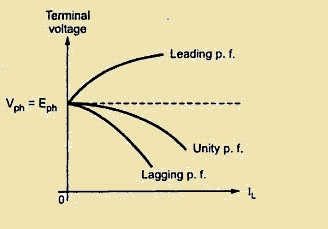The psychological costs of rejection increase as couple bonds create more closeness and interdependence, so we have a risk regulation system that protects us from the suffering generated by rejection.
The fact that we are emotionally attached to another person makes us more vulnerable to the pain of possible rejection. However, we often find enough motivation to take that risk when we love someone. Unknowingly, we trust each other.
- The emotional pain of rejection can be very great.
- It is an even more intense suffering when there is an addiction in between.
For this reason, many people want to protect their independence at all costs in a partner context; on the other hand, people need to build satisfactory relationships that meet their connection needs.
In the context of any relationship we show aspects of ourselves that we do not like, moments when our doubts and insecurities take shape, in this sense in a healthy relationship the signs of vulnerability, fragility or imperfection tend to generate confidence.
In a way, this way of undressing shows that one projects on reality without intermediate masks, but also increases the suffering that can cause possible rejection.
If we have the support of our partner, we will be exposed not to receive such support and the pain that this entails. This is the existential dilemma of interdependence. The fundamental behaviors for building satisfactory relationships increase the risk of rejection.
We have a regulatory system for the risk of pain from rejection, feeling valued and supported by each other leads us to seek a better connection in our bonds in the couple.
On the contrary, thinking that there is a high probability of rejection will increase the need for protection. This regulatory system works primarily at three levels or contingency rules:
Relationships, such as a romantic relationship, create situations of dependence. The behavior of one partner often limits or increases the capacity of the other. Conflicts of interest, commitments and sacrifices are necessary.
“Sally and Harry are looking for a movie to watch. Sally believes an action film would do well to distract her from her professional concerns. The art film Harry wants to see would only exacerbate his concerns. Does Sally put her psychological well-being in Harry’s Hands and risk not wanting to make that sacrifice for her, who doesn’t care about her needs?. – Sandra L. Murray-
Here is a small example of how we put our psychological well-being in the hands of our partner on a daily basis, it is these small details that activate our risk control system in the face of pain caused by rejection.
Is that them? Things from the world? That make us appreciate the degree of appreciation of our partner, report our feelings of gain or loss with that person, in addition they will serve as a reference to modulate the degree of emotional dependence that we will maintain with them in the future.
These situations of dependence question the ability of the couple to meet the needs of the other, they are the ones that activate the threat of rejection in the sentimental relationship, the relationships depend on the degree of control that is had over the perception that the other does not care. much about their needs.
When we feel underestimated by our partners, the activation limit of the regulatory system is very low; is activated to a minimum, in this case, as soon as it is activated, we will promote self-protection.
On the contrary, when we feel valued by our partner, the risk regulation will have a higher activation limit, if activated for any reason we will encourage the connection and look for new ways to approach our partner instead of protecting ourselves.
Both members of the couple activate this regulatory system, each couple, throughout their relationship, makes decisions about self-protection (decreased dependence) or increased relationships in the couple (increased dependence).
We all need this system that allows us to feel reasonably safe in an environment where we are continually vulnerable. Our emotional relationships and experience of interdependence greatly influence the qualities we believe we have.
Thus, perceiving rejection hurts, not only because it contradicts our desire to be included, but also because of its symbolic message, which shows us that our relationship with the couple has an uncertain future, if from previous experiences we favor self-protection and not proximity to the companion, we will sow the garden where our fears will be confirmed.
“Of all forms of caution, prudence in love is perhaps the most fatal to true happiness. “Bertrand Russell.
Some studies show that relationships have the greatest potential to meet our needs as adults, the curious thing is that these bonds in the couple are the same ones that arouse the most anxiety in the face of possible rejection.
The research of social psychologist Sandra L. Murray shows that we must put aside concerns about rejection and the risk of significant emotional dependence. His findings can be found in the article “Optimizing Insurance: The System of Risk Regulation in Relationships”, published by American Psychological Association (APA).
In any case, remember that there is more likely to be a satisfactory relationship when we prioritize the search for a connection with our partner, than to focus on minimizing the likelihood of suffering from possible future rejection.

